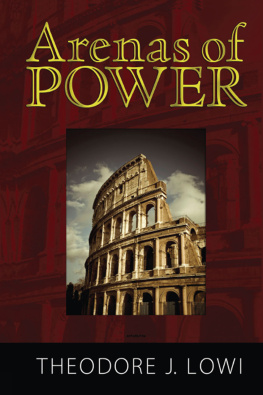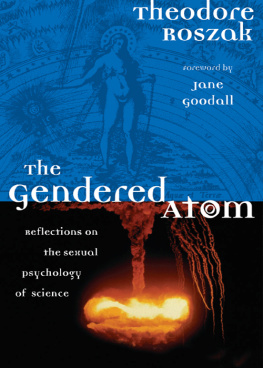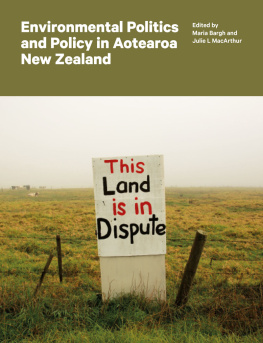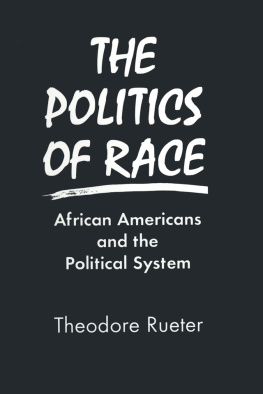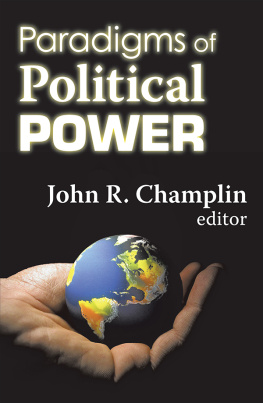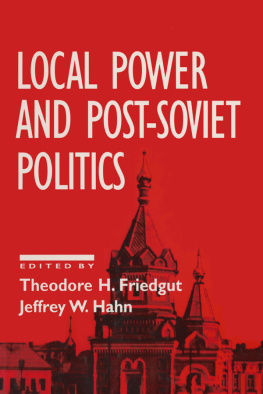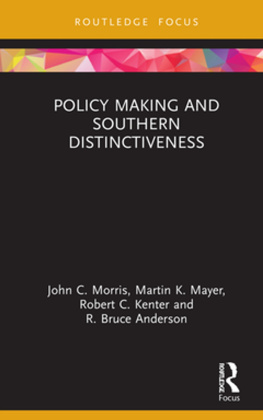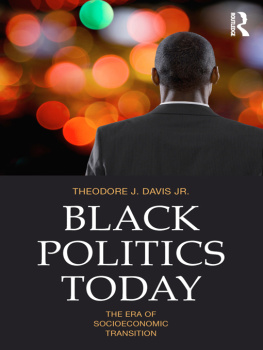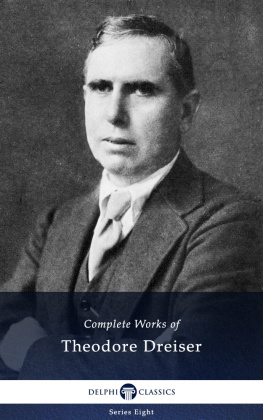First published 2009 by Paradigm Publishers
Published 2016 by Routledge
2 Park Square, Milton Park, Abingdon, Oxon OX14 4RN
711 Third Avenue, New York, NY 10017, USA
Routledge is an imprint of the Taylor & Francis Group, an informa business
Copyright 2009, Taylor & Francis.
All rights reserved. No part of this book may be reprinted or reproduced or utilised in any form or by any electronic, mechanical, or other means, now known or hereafter invented, including photocopying and recording, or in any information storage or retrieval system, without permission in writing from the publishers.
Notice:
Product or corporate names may be trademarks or registered trademarks, and are used only for identification and explanation without intent to infringe.
Library of Congress Cataloging-in-Publication Data
Lowi, Theodore J.
Arenas of power / Theodore J. Lowi.
p. cm.
ISBN 978-1-59451-330-5 (hardcover : alk. paper)
1. Policy sciences. 2. Power (Social sciences) 3. United StatesPolitics and government.
I. Title.
H97.L68 2008
303.3dc22
2008015135
ISBN 13 : 978-1-59451-330-5 (hbk)
ISBN 13 : 978-1-59451-331-2 (pbk)
Designed and typeset in Minion by Straight Creek Bookmakers
The Biography of Arenas of Power
Pluralism at Yale and in New Haven
For a political scientist, Yale was the place to be in the 1950s. Although the Department of Political Science didnt know it at the time, it was present at the creation of a political theory that could be appropriate for the New Deal era.
There was competition for bragging rights at Columbia University, in the single, imaginative mind of David Truman, which he had labeled group theory. Truman had unearthed in the late 1940s the virtually forgotten masterpiece of Arthur F. Bentley, The Process of Government. As Truman put it in the preface of his book, My plans for [The Governmental Process] grew out of my experience in teaching from Bentleys work. But group theory was more method than theory. In Trumans words, As the title of the present volume suggests, Bentleys attempt to fashion a tool has been the principal benchmark for my thinking. As a consequence, The Governmental Process was devoted primarily to empirical validation of the group as the proper unit for a science of politics. Intimations of theory were present, as indicated by his one substantive reference to pluralism in the entire book: The so-called pluralist school of political philosophers in the first quarter of the century were so bent upon discrediting prevailing conceptions of the state, that they frequently overlooked the central significance of their own point of view ().
In the early 1950s, there was no consensus at Yale, and Trumans 1951 book hadnt reached New Haven. Robert A. Dahl and Charles E. Lindbloms highly innovative book, Politics, Economics, and Welfare, published two years after Trumans, identified four central sociopolitical processes, of which polyarchy is one, along with price system, hierarchy, and bargaining. Dahl and Lindbloms book was the single thing that drew me away from law into academia. I was fascinated by the rendering of state and government into techniques of control, a formulation that has never left my mind and has rarely deserted me when in need of characterization of policies in order to determine what this case is a case of. My choice of Yale was determined not only by reading Dahl and Lindblom but by two great mentors at Michigan State, Joseph ). That was hardly a treatment to light a fire under my thinking or, for that matter, anyone elses. (The only other references to the same phenomenon will be found toward the end of the book, pp. 498, 507508.)
In fact, Dahls first self-conscious effort as a political theorist did not come forward until 1956, with publication of A Preface to Democratic Theory. Late in 1956, while waiting for a table at a New Haven restaurant, I overheard a prominent competitor of Dahl, Willmoore Kendall, say to his companion, This book makes Dahl the foremost theorist of our day. But it was definitely not a theory of pluralism or of pluralistic democracy. The closest he came to a pluralist theory as such was in his first chapter, Madisonian Democracy. But pluralism in name or concept does not appear anywhere. He offers Madisonian democracy simply as the first of three democratic models, with the second being populist democracy, and the third polyarchal democracy. And he refers to the Madisonian model in the first chapter as the American hybrid, and not pluralism or pluralist democracy.
Dahls three models were tried out on the students (including me) in the first semester of his 19541955 seminar on politics and policy making, which turned out to be a trial run for his Chicago Walgreen Lectures as well as his book. My best introduction to Madison, which served me well in my teaching and scholarship for years to come, came from Dahls rendition of how social pluralism was a necessary check against tyranny. But it didnt make a pluralist out of Dahl or of me, at least not at that point. The second semester of that formative 19541955 seminar was dedicated (by unanimous vote of the members of the seminar) to a community study of the nearby town of Guilford. It had intrigued Dahl and us that the Guilford town meeting had rejected education bond issues in previous years and suddenly reversed itself. Questions of power, and the scope of power, in Guilford were to become a trial run for his New Haven study and his highly influential Who Governs?
Pluralism at Yale did not become the focal point of empirical research and selfconscious theory until Yale in particular and pluralism in general found themselves under siege by a swarm of sociologists, packing weapons of social structure, elitism, and oligarchy, with implications not only for American communities but for the prospects of democracy itself. It started modestly as a purely academic project by sociologists truly interested in community studies, of which there was a series of careful empirical reports on research carried out all during the postwar period. Nelson Polsby, the most intensive and thorough student of this sociological threat, referred to their point of view as a stratification theory of community power, since it suggests that the pattern of social stratification in a community is the principal, if not the only, determinant of the pattern of power ( My hope and their expectation was that I would also get a dissertation out of some of my research for them.
Work for Sayre and Kaufman completed my graduate education and made New York the opportunity of a lifetime. First, it provided an escape from New Haven without having to leave the Yale Ph.D. program. Second and more to the point, New York was an intellectual experience different in the extreme from that of New Haven and most other middle-size U.S. cities where community studies were staged. The difference between New Haven and New York was the difference between a city of the late nineteenth to the middle twentieth century versus a city of the late twentieth and the early twenty-first century. Those of my graduate cohort who remained in New Haven became pluralists and remained pluralists. I virtually commuted between New York and New Haven during the ensuing two years, but the study of New York was changing me in ways that I was yet to recognize.





